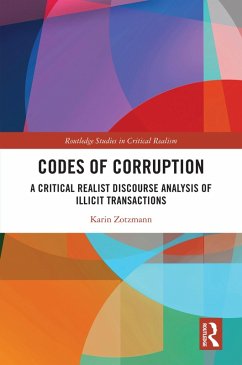Codes of Corruption attempts to fill this gap. It draws on a corpus of videos and audio recordings from Mexico secretly recorded by individuals who were present at the time and later uploaded to a public streaming platform. This corpus was analyzed through a variety of analytical tools to show the interactional and discursive work participants engage in to come to an agreement and, at the same time, the structural configurations that enabled, constrained, and motivated the participants. To capture these multidimensional causal configurations and avoid the pitfalls of reductionism, the theoretical and methodological framework adopted in this research is based on the philosophy of Critical Realism.
Through this innovative approach, the book aims to contribute to debates and emerging research agendas in the study of corruption and thus to further the conceptualization of the phenomenon, its causes, and potential remedies. Its results will be of interest to researchers in the above-mentioned disciplines as well as to those working in Critical Discourse Analysis, Critical Realism, Interactional Sociolinguistics, and Pragmatics. Codes of Corruption will also be of interest to a wider audience of governmental and non-governmental institutions that engage in the design of anti-corruption strategies, training, and education.
Dieser Download kann aus rechtlichen Gründen nur mit Rechnungsadresse in A, B, BG, CY, CZ, D, DK, EW, E, FIN, F, GR, HR, H, IRL, I, LT, L, LR, M, NL, PL, P, R, S, SLO, SK ausgeliefert werden.


